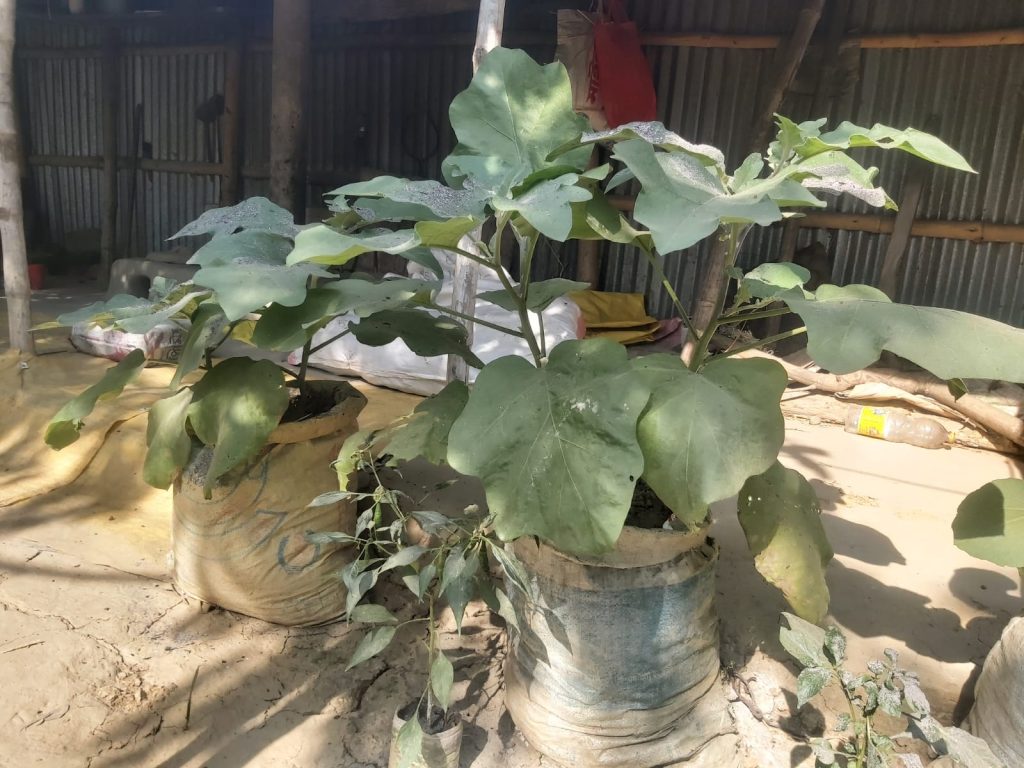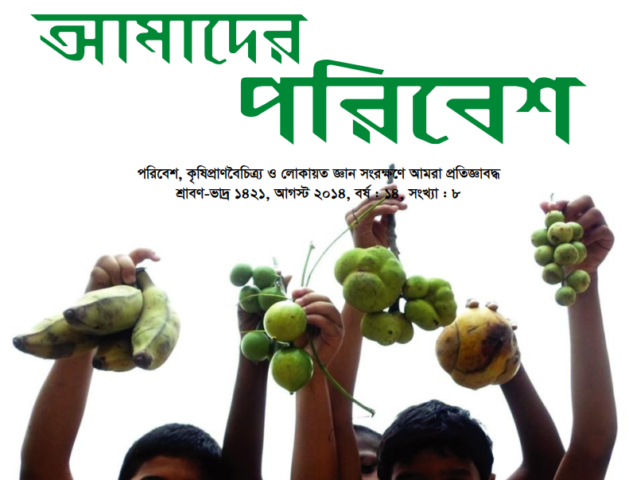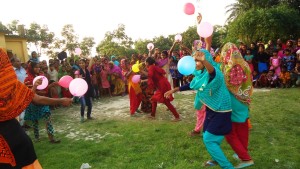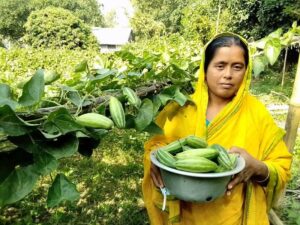By Amreto Sarkar from Rajshahi
The Mondumala and Badhair areas of Tanore Upazila in Rajshahi district are the most drought-prone. Drought does not only significantly affect field crops but also orchard cultivation. The natural drought and the Barind region’s soil characteristics makes farmers toil heart and soul to produce crops in their fields due to the soil has low water retention capacity and less of organic matter. If farmers water the soil it gets softened quickly, but later on it gets hard like stone due to lack of water. In dry conditions, mechanized tillage is necessary as traditional plowing with oxen becomes difficult.
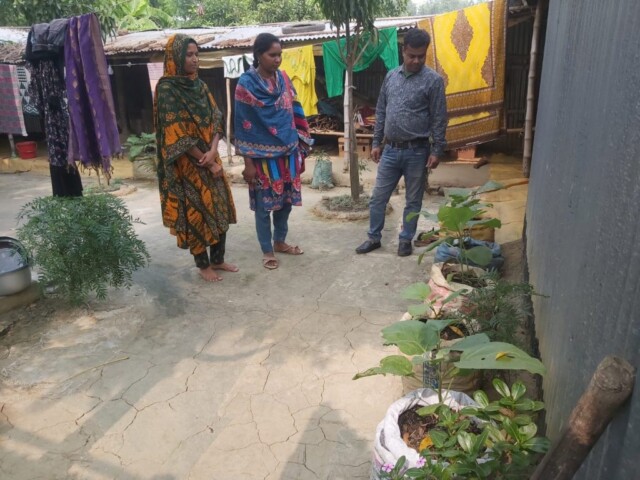
Due to the low organic content of soil farmers and women in the area experimentally cultivate vegetable with minimum water use in their homesteads as part of their adaptation initiative. They use various irrigation methods, such as watering with pitchers and reusing household water for irrigation. Recently, many farmers have started cultivating vegetables in soil-filled sacks or repurposed plastic bottles. These methods are regularly practiced to sustain homestead vegetable cultivation.
Benefits of These Initiatives
Mosa Sarmin Akter (42), a farmer from Jagadishpur village in Mondumala, has planted eggplants, chilies, and gourds in sacks and discarded plastic bottles in her backyard. Due to taking intensive care, her plants have thrived. She adopted this method because her courtyard soil is extremely hard and dry. She said, “Growing vegetables in sacks is easier to manage. Mixing soil and cow dung in a sack and planting seeds, I can get a good yield. It requires less irrigation and prevents water wastage.’ She went on saying, ‘Water scarcity is the biggest challenge in our area.”
Another farmer from the same village, Shantina Mardi (38), said, “Our soil lacks nutrients. If we use decomposed cow dung and pond soil in sacks or plastic bottles to plant seeds or seedlings, they grow well with minimum care.’ ‘When the plants are small, we can move them to the shade during extreme heat. Once they get matured, they withstand the sun better-” she added.
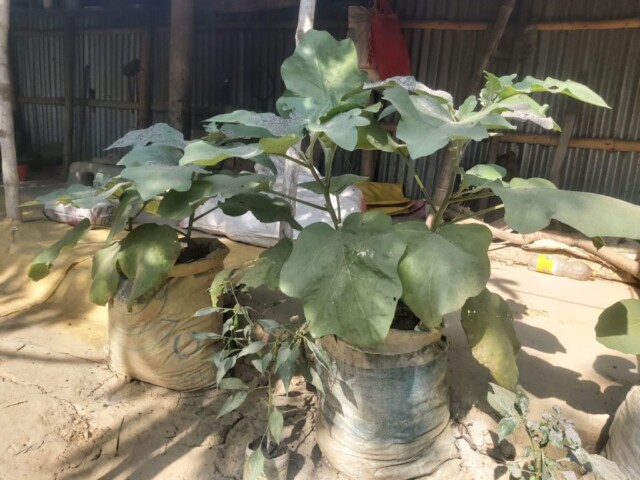
Shyamali Rani (39), a housewife, has planted red spinach seeds around the tree’s base, where water is regularly applied. She mentioned, “Since the base of the tree is watered daily and the soil is fertile, I planted red spinach at a low cost. This way, I can get pesticide-free, safe spinach.”
With climate change intensifying water scarcity in the region, farmers are relying on their knowledge and experience to continue farming. Their small but innovative practices are helping them adapt to climate change.

